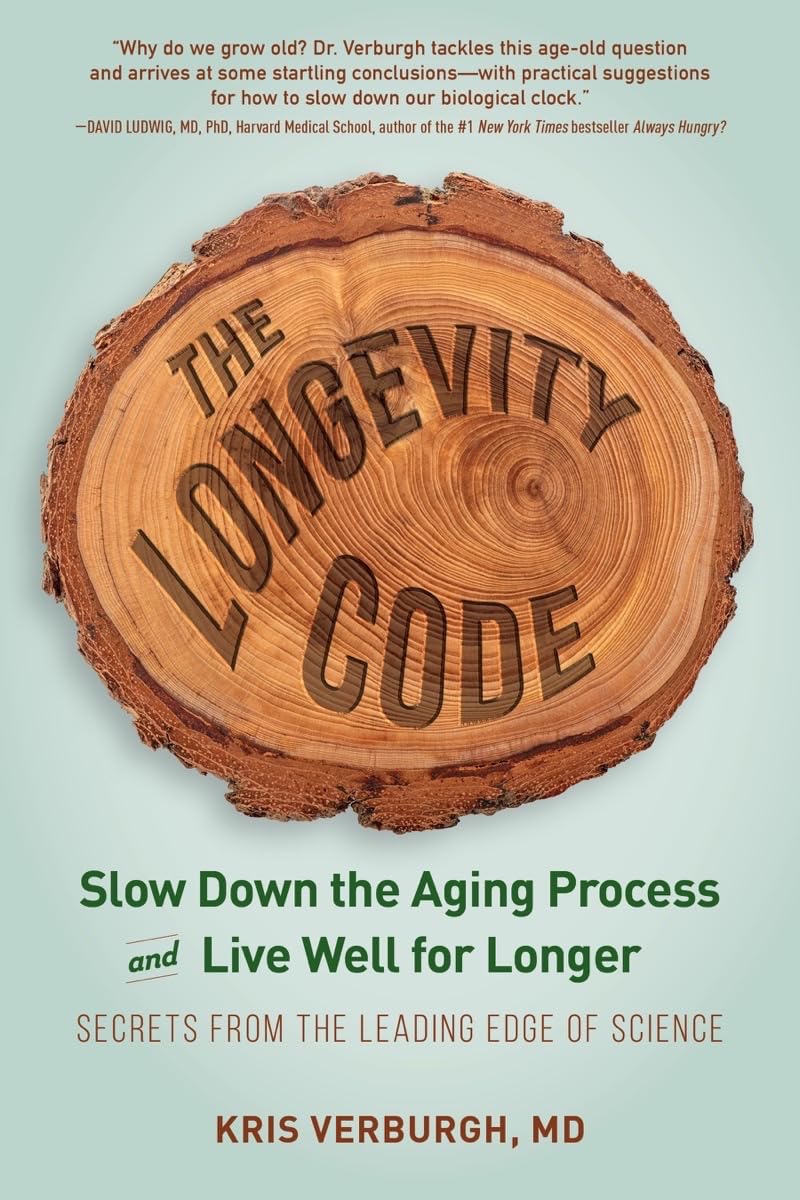
Managing Sibling Relationships In Adult Life
10almonds is reader-supported. We may, at no cost to you, receive a portion of sales if you purchase a product through a link in this article.
Managing Sibling Relationships In Adult Life
After our previous main feature on estrangement, a subscriber wrote to say:
❝Parent and adult child relationships are so important to maintain as you age, but what about sibling relationships? Adult choices to accept and move on with healthier boundaries is also key for maintaining familial ties.❞
And, this is indeed critical for many of us, if we have siblings!
Writer’s note: I don’t have siblings, but I do happen to have one of Canada’s top psychologists on speed-dial, and she has more knowledge about sibling relationships than I do, not to mention a lifetime of experience both personally and professionally. So, I sought her advice, and she gave me a lot to work with.
Today I bring her ideas, distilled into my writing, for 10almonds’ signature super-digestible bitesize style.
A foundation of support
Starting at the beginning of a sibling story… Sibling relationships are generally beneficial from the get-go.
This is for reasons of mutual support, and an “always there” social presence.
Of course, how positive this experience is may depend on there being a lack of parental favoritism. And certainly, sibling rivalries and conflict can occur at any age, but the stakes are usually lower, early in life.
Growing warmer or colder
Generally speaking, as people age, sibling relationships likely get warmer and less conflictual.
Why? Simply put, we mature and (hopefully!) get more emotionally stable as we go.
However, two things can throw a wrench into the works:
- Long-term rivalries or jealousies (e.g., “who has done better in life”)
- Perceptions of unequal contribution to the family
These can take various forms, but for example if one sibling earns (or otherwise has) much more or much less than another, that can cause resentment on either or both sides:
- Resentment from the side of the sibling with less money: “I’d look after them if our situations were reversed; they can solve my problems easily; why do they resent that and/or ignore my plight?”
- Resentment from the side of the sibling with more money: “I shouldn’t be having to look after my sibling at this age”
It’s ugly and unpleasant. Same goes if the general job of caring for an elderly parent (or parents) falls mostly or entirely on one sibling. This can happen because of being geographically closer or having more time (well… having had more time. Now they don’t, it’s being used for care!).
It can also happen because of being female—daughters are more commonly expected to provide familial support than sons.
And of course, that only gets exacerbated as end-of-life decisions become relevant with regard to parents, and tough decisions may need to be made. And, that’s before looking at conflicts around inheritance.
So, all that seems quite bleak, but it doesn’t have to be like that.
Practical advice
As siblings age, working on communication about feelings is key to keeping siblings close and not devolving into conflict.
Those problems we talked about are far from unique to any set of siblings—they’re just more visible when it’s our own family, that’s all.
So: nothing to be ashamed of, or feel bad about. Just, something to manage—together.
Figure out what everyone involved wants/needs, put them all on the table, and figure out how to:
- Make sure outright needs are met first
- Try to address wants next, where possible
Remember, that if you feel more is being asked of you than you can give (in terms of time, energy, money, whatever), then this discussion is a time to bring that up, and ask for support, e.g.:
“In order to be able to do that, I would need… [description of support]; can you help with that?”
(it might even sometimes be necessary to simply say “No, I can’t do that. Let’s look to see how else we can deal with this” and look for other solutions, brainstorming together)
Some back-and-forth open discussion and even negotiation might be necessary, but it’s so much better than seething quietly from a distance.
The goal here is an outcome where everyone’s needs are met—thus leveraging the biggest strength of having siblings in the first place:
Mutual support, while still being one’s own person. Or, as this writer’s psychology professor friend put it:
❝Circling back to your original intention, this whole discussion adds up to: siblings can be very good or very bad for your life, depending on tons of things that we talked about, especially communication skills, emotional wellness of each person, and the complexity of challenges they face interdependently.❞
Our previous main feature about good communication can help a lot:
Don’t Forget…
Did you arrive here from our newsletter? Don’t forget to return to the email to continue learning!
Recommended
Learn to Age Gracefully
Join the 98k+ American women taking control of their health & aging with our 100% free (and fun!) daily emails:
-
Power Vegan Meals – by Maya Sozer
10almonds is reader-supported. We may, at no cost to you, receive a portion of sales if you purchase a product through a link in this article.
This book has inspired some of the recipes we’ve shared recently—we’ve invariably tweaked and in our opinion improved them, but the recipes are great as written too.
The recipes, of which there are 75, are all vegan, gluten-free, high protein, and high fiber. Some reviewers on Amazon have complained that the recipes are high-calorie, and they often are, but those calories are mostly from healthy fats, so we don’t think it’s a bad thing. Still, if you’re doing a strict calorie-controlled diet, this is probably not the one for you.
Another thing the recipes are is tasty without being unduly complicated, as well as being mostly free from obscure ingredients. This latter is a good thing not because obscure ingredients are inherently bad, but rather that it can be frustrating to read a recipe and find its star ingredient is a cup of perambulatory periannath that must be harvested from the west-facing slopes of Ithilien during a full moon, no substitutions.
The style and format is simple and clear with minimal overture, one recipe per double-page; picture on one side, recipe on the other; perfect for a kitchen reading-stand.
Bottom line: these recipes are for the most part very consistent with what we share here, and we recommend them, unless you’re looking for low-calorie options.
Click here to check out Power Vegan Meals, and power-up your vegan meals!
Share This Post
-
ADHD For Smart Ass Women – by Tracy Otsuka
10almonds is reader-supported. We may, at no cost to you, receive a portion of sales if you purchase a product through a link in this article.
We’ve reviewed books about ADHD in adults before, what makes this one different? It’s the wholly female focus. Which is not to say some things won’t apply to men too, they will.
But while most books assume a male default unless it’s “bikini zone” health issues, this one is written by a woman for women focusing on the (biological and social) differences in ADHD for us.
A strength of the book is that it neither seeks to:
- over-medicalize things in a way that any deviation from the norm is inherently bad and must be fixed, nor
- pretend that everything’s a bonus, that we are superpowered and beautiful and perfect and capable and have no faults that might ever need addressing actually
…instead, it gives a good explanation of the ins and outs of ADHD in women, the strengths and weaknesses that this brings, and good solid advice on how to play to the strengths and reduce (or at least work around) the weaknesses.
Bottom line: this book has been described as “ADHD 2.0 (a very popular book that we’ve reviewed previously), but for women”, and it deserves that.
Click here to check out ADHD for Smart Ass Women, and fall in love with your neurodivergent brain!
Share This Post
-
The Osteoporosis Breakthrough – by Dr. Doug Lucas
10almonds is reader-supported. We may, at no cost to you, receive a portion of sales if you purchase a product through a link in this article.
“Osteoporosis” and “break” often don’t go well together, but here they do. So, what’s the breakthrough here?
There isn’t one, honestly. But if we overlook the marketing choices and focus on the book itself, the content here is genuinely good:
The book offers a comprehensive multivector approach to combatting osteoporosis, e.g:
- Diet
- Exercise
- Other lifestyle considerations
- Supplements
- Hormones
- Drugs
The author considers drugs a good and important tool for some people with osteoporosis, but not most. The majority of people, he considers, will do better without drugs—by tackling things more holistically.
The advice here is sound and covers all reasonable angles without getting hung up on the idea of there being a single magical solution for all.
Bottom line: if you’re looking for a book that’s a one-stop-shop for strategies against osteoporosis, this is a good option.
Click here to check out The Osteoporosis Breakthrough, and keep your bones strong!
Share This Post
Related Posts
-
Say That Again: Using Hearing Aids Can Be Frustrating for Older Adults, but Necessary
10almonds is reader-supported. We may, at no cost to you, receive a portion of sales if you purchase a product through a link in this article.
It was an every-other-day routine, full of frustration.
Every time my husband called his father, who was 94 when he died in 2022, he’d wait for his dad to find his hearing aids and put them in before they started talking.
Even then, my father-in-law could barely hear what my husband was saying. “What?” he’d ask over and over.
Then, there were the problems my father-in-law had replacing the devices’ batteries. And the times he’d end up in the hospital, unable to understand what people were saying because his hearing aids didn’t seem to be functioning. And the times he’d drop one of the devices and be unable to find it.
How many older adults have problems of this kind?
There’s no good data about this topic, according to Nicholas Reed, an assistant professor of epidemiology at Johns Hopkins Bloomberg School of Public Health who studies hearing loss. He did a literature search when I posed the question and came up empty.
Reed co-authored the most definitive study to date of hearing issues in older Americans, published in JAMA Open Network last year. Previous studies excluded people 80 and older. But data became available when a 2021 survey by the National Health and Aging Trends Study included hearing assessments conducted at people’s homes.
The results, based on a nationally representative sample of 2,803 people 71 and older, are eye-opening. Hearing problems become pervasive with advancing age, exceeding 90% in people 85 and older, compared with 53% of 71- to 74-year-olds. Also, hearing worsens over time, with more people experiencing moderate or severe deficits once they reach or exceed age 80, compared with people in their 70s.
However, only 29% of those with hearing loss used hearing aids. Multiple studies have documented barriers that inhibit use. Such devices, which Medicare doesn’t cover, are pricey, from nearly $1,000 for a good over-the-counter set (OTC hearing aids became available in 2022) to more than $6,000 for some prescription models. In some communities, hearing evaluation services are difficult to find. Also, people often associate hearing aids with being old and feel self-conscious about wearing them. And they tend to underestimate hearing problems that develop gradually.
Barbara Weinstein, a professor of audiology at the City University of New York Graduate Center and author of the textbook “Geriatric Audiology,” added another concern to this list when I reached out to her: usability.
“Hearing aids aren’t really designed for the population that most needs to use them,” she told me. “The move to make devices smaller and more sophisticated technologically isn’t right for many people who are older.”
That’s problematic because hearing loss raises the risk of cognitive decline, dementia, falls, depression, and social isolation.
What advice do specialists in hearing health have for older adults who have a hard time using their hearing aids? Here are some thoughts they shared.
Consider larger, customized devices. Many older people, especially those with arthritis, poor fine motor skills, compromised vision, and some degree of cognitive impairment, have a hard time manipulating small hearing aids and using them properly.
Lindsay Creed, associate director of audiology practices at the American Speech-Language-Hearing Association, said about half of her older clients have “some sort of dexterity issue, whether numbness or reduced movement or tremor or a lack of coordination.” Shekinah Mast, owner of Mast Audiology Services in Seaford, Delaware, estimates nearly half of her clients have vision issues.
For clients with dexterity challenges, Creed often recommends “behind-the-ear hearing aids,” with a loop over the ear, and customized molds that fit snugly in the ear. Customized earpieces are larger than standardized models.
“The more dexterity challenges you have, the better you’ll do with a larger device and with lots of practice picking it up, orienting it, and putting it in your ear,” said Marquitta Merkison, associate director of audiology practices at ASHA.
For older people with vision issues, Mast sometimes orders hearing aids in different colors for different ears. Also, she’ll help clients set up stands at home for storing devices, chargers, and accessories so they can readily find them each time they need them.
Opt for ease of use. Instead of buying devices that require replacing tiny batteries, select a device that can be charged overnight and operate for at least a day before being recharged, recommended Thomas Powers, a consultant to the Hearing Industries Association. These are now widely available.
People who are comfortable using a smartphone should consider using a phone app to change volume and other device settings. Dave Fabry, chief hearing health officer at Starkey, a major hearing aid manufacturer, said he has patients in their 80s and 90s “who’ve found that being able to hold a phone and use larger visible controls is easier than manipulating the hearing aid.”
If that’s too difficult, try a remote control. GN ReSound, another major manufacturer, has designed one with two large buttons that activate the volume control and programming for its hearing aids, said Megan Quilter, the company’s lead audiologist for research and development.
Check out accessories. Say you’re having trouble hearing other people in restaurants. You can ask the person across the table to clip a microphone to his shirt or put the mike in the center of the table. (The hearing aids will need to be programmed to allow the sound to be streamed to your ears.)
Another low-tech option: a hearing aid clip that connects to a piece of clothing to prevent a device from falling to the floor if it becomes dislodged from the ear.
Wear your hearing aids all day. “The No. 1 thing I hear from older adults is they think they don’t need to put on their hearing aids when they’re at home in a quiet environment,” said Erika Shakespeare, who owns Audiology and Hearing Aid Associates in La Grande, Oregon.
That’s based on a misunderstanding. Our brains need regular, not occasional, stimulation from our environments to optimize hearing, Shakespeare explained. This includes noises in seemingly quiet environments, such as the whoosh of a fan, the creak of a floor, or the wind’s wail outside a window.
“If the only time you wear hearing aids is when you think you need them, your brain doesn’t know how to process all those sounds,” she told me. Her rule of thumb: “Wear hearing aids all your waking hours.”
Consult a hearing professional. Everyone’s needs are different, so it’s a good idea to seek out an audiologist or hearing specialist who, for a fee, can provide guidance.
“Most older people are not going to know what they need” and what options exist without professional assistance, said Virginia Ramachandran, the head of audiology at Oticon, a major hearing aid manufacturer, and a past president of the American Academy of Audiology.
Her advice to older adults: Be “really open” about your challenges.
If you can’t afford hearing aids, ask a hearing professional for an appointment to go over features you should look for in over-the-counter devices. Make it clear you want the appointment to be about your needs, not a sales pitch, Reed said. Audiology practices don’t routinely offer this kind of service, but there’s good reason to ask since Medicare started covering once-a-year audiologist consultations last year.
We’re eager to hear from readers about questions you’d like answered, problems you’ve been having with your care, and advice you need in dealing with the health care system. Visit http://kffhealthnews.org/columnists to submit your requests or tips.
KFF Health News is a national newsroom that produces in-depth journalism about health issues and is one of the core operating programs at KFF—an independent source of health policy research, polling, and journalism. Learn more about KFF.
Subscribe to KFF Health News’ free Morning Briefing.
Don’t Forget…
Did you arrive here from our newsletter? Don’t forget to return to the email to continue learning!
Learn to Age Gracefully
Join the 98k+ American women taking control of their health & aging with our 100% free (and fun!) daily emails:
-
STI rates are increasing among midlife and older adults. We need to talk about it
10almonds is reader-supported. We may, at no cost to you, receive a portion of sales if you purchase a product through a link in this article.
Globally, the rates of common sexually transmissible infections (STIs) are increasing among people aged over 50. In some cases, rates are rising faster than among younger people.
Recent data from the United States Centers for Disease Control and Prevention shows that, among people aged 55 and older, rates of gonorrhoea and chlamydia, two of the most common STIs, more than doubled between 2012 and 2022.
Australian STI surveillance data has reflected similar trends. Between 2013 and 2022, there was a steady increase in diagnoses of chlamydia, gonorrhoea and syphilis among people aged 40 and older. For example, there were 5,883 notifications of chlamydia in Australians 40 plus in 2013, compared with 10,263 in 2022.
A 2020 study of Australian women also showed that, between 2000 and 2018, there was a sharper increase in STI diagnoses among women aged 55–74 than among younger women.
While the overall rate of common STIs is highest among young adults, the significant increase in STI diagnoses among midlife and older adults suggests we need to pay more attention to sexual health across the life course.
Fit Ztudio/Shutterstock Why are STI rates rising among older adults?
STI rates are increasing globally for all age groups, and an increase among midlife and older people is in line with this trend.
However, increases of STIs among older people are likely due to a combination of changing sex and relationship practices and hidden sexual health needs among this group.
The “boomer” generation came of age in the 60s and 70s. They are the generation of free love and their attitude to sex, even as they age, is quite different to that of generations before them.
Given the median age of divorce in Australia is now over 43, and the internet has ushered in new opportunities for post-separation dating, it’s not surprising that midlife and older adults are exploring new sexual practices or finding multiple sexual partners.
People may start new relationships later in life. Tint Media/Shutterstock It’s also possible midlife and older people have not had exposure to sexual health education in school or do not relate to current safe sex messages, which tend to be directed toward young people. Condoms may therefore seem unnecessary for people who aren’t trying to avoid pregnancy. Older people may also lack confidence negotiating safe sex or accessing STI screening.
Hidden sexual health needs
In contemporary life, the sex lives of older adults are largely invisible. Ageing and older bodies are often associated with loss of power and desirability, reflected in the stereotype of older people as asexual and in derogatory jokes about older people having sex.
With some exceptions, we see few positive representations of older sexual bodies in film or television.
Older people’s sexuality is also largely invisible in public policy. In a review of Australian policy relating to sexual and reproductive health, researchers found midlife and older adults were rarely mentioned.
Sexual health policy generally targets groups with the highest STI rates, which excludes most older people. As midlife and older adults are beyond childbearing years, they also do not feature in reproductive health policy. This means there is a general absence of any policy related to sex or sexual health among midlife or older adults.
Added to this, sexual health policy tends to be focused on risk rather than sexual wellbeing. Sexual wellbeing, including freedom and capacity to pursue pleasurable sexual experiences, is strongly associated with overall health and quality of life for adults of all ages. Including sexual wellbeing as a policy priority would enable a focus on safe and respectful sex and relationships across the adult life course.
Without this priority, we have limited knowledge about what supports sexual wellbeing as people age and limited funding for initiatives to engage with midlife or older adults on these issues.
Midlife and older adults may have limited knowledge about STIs. Southworks/Shutterstock How can we support sexual health and wellbeing for older adults?
Most STIs are easily treatable. Serious complications can occur, however, when STIs are undiagnosed and untreated over a long period. Untreated STIs can also be passed on to others.
Late diagnosis is not uncommon as some STIs can have no symptoms and many people don’t routinely screen for STIs. Older, heterosexual adults are, in general, less likely than other groups to seek regular STI screening.
For midlife or older adults, STIs may also be diagnosed late because some doctors do not initiate testing due to concerns they will cause offence or because they assume STI risk among older people is negligible.
Many doctors are reluctant to discuss sexual health with their older patients unless the patient explicitly raises the topic. However, older people can be embarrassed or feel awkward raising matters of sex.
Resources for health-care providers and patients to facilitate conversations about sexual health and STI screening with older patients would be a good first step.
To address rising rates of STIs among midlife and older adults, we also need to ensure sexual health promotion is targeted toward these age groups and improve accessibility of clinical services.
More broadly, it’s important to consider ways to ensure sexual wellbeing is prioritised in policy and practice related to midlife and older adulthood.
A comprehensive approach to older people’s sexual health, that explicitly places value on the significance of sex and intimacy in people’s lives, will enhance our ability to more effectively respond to sexual health and STI prevention across the life course.
Jennifer Power, Associate Professor and Principal Research Fellow, Australian Research Centre in Sex, Health and Society, La Trobe University
This article is republished from The Conversation under a Creative Commons license. Read the original article.
Don’t Forget…
Did you arrive here from our newsletter? Don’t forget to return to the email to continue learning!
Learn to Age Gracefully
Join the 98k+ American women taking control of their health & aging with our 100% free (and fun!) daily emails:
-
The Longevity Code – by Dr. Kris Verburgh
10almonds is reader-supported. We may, at no cost to you, receive a portion of sales if you purchase a product through a link in this article.
Notwithstanding the subtitle claim of “secrets from the leading edge of science”, we’ll note up front that this book was published in 2015, and what was new then, isn’t now. However, what was new then is still important now, so we think the book merits attention just the same.
The book examines why certain creatures (like humans) seem programmed to grow old and die, and why others (few others, but enough to make a list) either simply do not age, or else do age but can become younger when they hit a certain point. If this is the first you’re hearing of biologically immortal creatures, we’ll mention: they can and do die, just, their cause of death is usually by being eaten. But on a cellular and structural level, they don’t age. They grow to maturity and then just stay that way until one day they get eaten (or fall to some similar external circumstance).
Tackling the question of “why do we age?” (not as a philosophical question, but rather as an engineering question) is important to tackle the critical question of “…and could we not?”, and that’s what much of this book is about.
The real reason that compared to other mammals, humans live (for example) slightly longer than bats but not as long as naked mole rats, comes down mostly to genes, which makes it sound like things are set in stone, but rather, even without outright gene-editing technologies like CRISPR, gene expression is often quite modifiable, and often modifiable not just by drugs, but also by supplements, and indeed by nutraceuticals, which means also by diet, plus diet-adjacent things like fasting.
While this is mostly an explanatory book rather than a how-to, there’s enough to make practical use of, and even a recipes section.
The style is very gripping pop-science—or at least, if you’re anything like this reviewer, you’ll find it a page-turner. While being light on citations as we go (not like some authors who will mark several citations per page, or in the extreme, for every declarative sentence made), there is a reassuring bibliography at the back.
Bottom line: if you’re interested in the “under the hood” of aging, then you will love this book.
Click here to check out The Longevity Code, and slow down the aging process to live well for longer!
Don’t Forget…
Did you arrive here from our newsletter? Don’t forget to return to the email to continue learning!
Learn to Age Gracefully
Join the 98k+ American women taking control of their health & aging with our 100% free (and fun!) daily emails:










